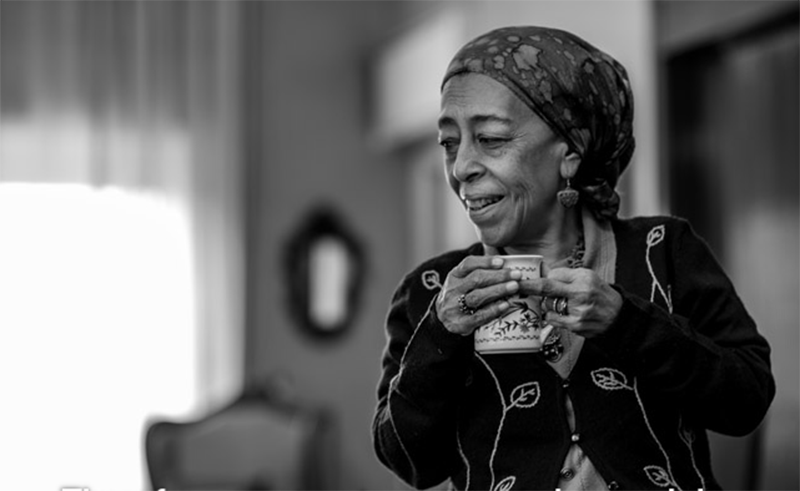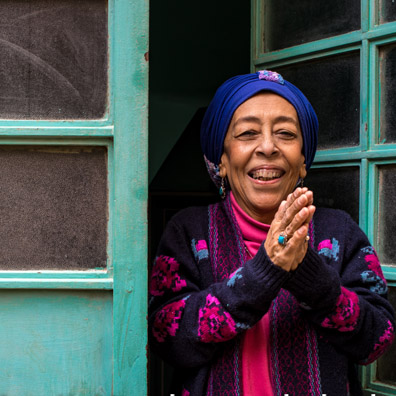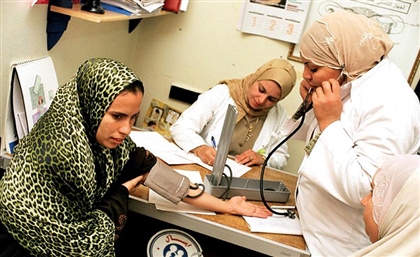Thalassemia: More Than 8 Million Egyptians Unknowingly Carry This Potentially Fatal Genetic Disorder
Two Egyptian Thalassemia sufferers speak out on the fatal hereditary blood disorder.

Most of us never had to wonder what it would be like not to have the things we take for granted, like health. Most of us are born with a clean slate when it comes to our physical well-being, and we tend to take that fortunate fact as just another reality of how life should be. For those of us who are born with Thalassemia, however, the story takes a different turn, which is why two Egyptian women living with Thalassemia have finally decided to come out of their shell and share their stories with the blood disorder.
Thalassemia is a hereditary blood disorder, which is mostly common among people of South Asian, African, and South European descent, and it can cause its sufferers a wide range of mild to severe symptoms, which, in many cases, may require intensive medical attention and regular blood transfusions. The disorder is characterised by abnormal haemoglobin production which can cause a number of health concerns, including iron overload, vulnerability to infections, bone deformities, and an enlarged spleen. In some cases, it causes mild to severe anaemia, which can result in exhaustion and pale skin.
As many as 9 percent of Egyptians are unknowingly carrying Thalassemia genes without any apparent symptoms, according to the President of the Egyptian Thalassemia Association, Dr. Amal Al Beshlawy. Together with International Thalassemia Day (ITD), the Egyptian Thalassemia Association (ETA), Novartis Pharma, the Iron Health Alliance, and Al Sawy Culture Wheel, Beshlawy has been involved in an awareness campaign educating people about the disease and the proper treatment for it. “In Egypt, there are 10,000 registered Thalassemia cases, and over 20,000 non-registered ones, with the carrier rate standing at 9 percent of the population. Treatment is the key to living longer and better; iron chelation medications are vital for Thalassemia patients," explains Al Beshlawy.
 Left to right: Manal Shoukry and Amal Al Bashlawy
Left to right: Manal Shoukry and Amal Al Bashlawy
The campaign features two courageous Thalassemia patients who set out to break the silence by shedding light on their struggles with the disorder, in an attempt to get Egyptians to draw their swords in the face of the killer genes by taking precautions and seeking treatment if necessary.
“I’m 26 years old, and I was diagnosed with Thalassemia when I was only a year old. As a child, it was not easy being sick and getting treatment. But if anything, I believe it helped build my character,” says Heba Ibrahim, who is one of 280 million people fighting Thalassemia in the world. “Growing up, I learned a lot from other patients, so I believe an information exchange platform is needed. Preventive measures and premarital checkups must be enforced, and nationwide genetic counselling centres should be established to educate those wishing to get married about this disease, the danger of marrying carriers, and inter-familial marriages which double the risk of children being born with the disease.”
 Thalassemia patients Heba Ibrahim
Thalassemia patients Heba Ibrahim
“It is critical to promote understanding of Thalassemia to ensure that children and adults are receiving proper care and support. I now volunteer with the Egyptian Red Crescent to inform patients and their families on Thalassemia - with treatment, these children can pursue fulfilling lives,” explains Thalassemia patient Manal Shoukry, further emphasising the need for better awareness and early discovery of the gene.
 Thalassemia patient Manal Shoukry
Thalassemia patient Manal Shoukry
At-birth-comprehensive tests that include complete blood count, special haemoglobin tests, and genetic tests are key to exposing the disorder at an early age, which can also be discovered via parental testing before birth.
The content of this article is sponsored.
Trending This Week
-
Apr 10, 2024
























